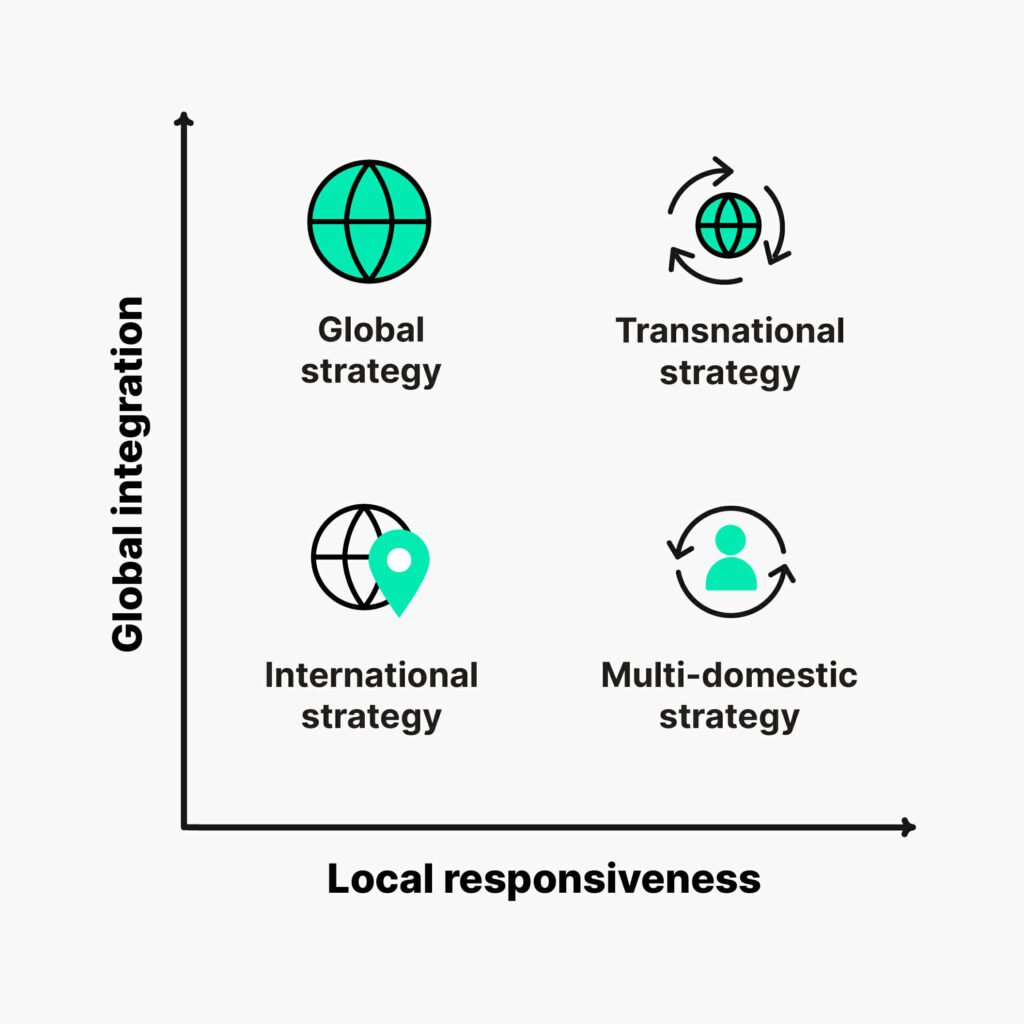Strategies for Entering New Markets: Expanding Your Business Globally
Expanding a business into global markets can present significant opportunities for growth, but it requires careful planning and strategic decision-making. Here are some key strategies to consider:
- Market Research and Selection
- Conduct thorough market research to identify target countries with demand for your products or services.
- Analyze factors like cultural preferences, economic conditions, competitive landscape, and legal requirements.
- Select markets that align with your business goals and offer the best growth potential.
- Tailoring Offerings for Local Markets
- Customize products and services to meet local tastes, cultural nuances, and regulatory requirements.
- Develop a localized marketing strategy that resonates with the target audience, including language translation and culturally relevant branding.
- Entry Mode
- Choose the most suitable market entry strategy:
- Exporting: Low-risk option by selling your products abroad.
- Franchising or Licensing: Allowing local partners to use your brand or product in exchange for royalties.
- Joint Ventures or Partnerships: Collaborating with local businesses to share risks and leverage their market knowledge.
- Direct Investment: Establishing operations in the foreign market through acquisitions or building new facilities (higher risk but potentially more control).
- Building a Local Network
- Establish relationships with local suppliers, distributors, and other key stakeholders.
- Engage with government bodies and regulatory authorities to navigate local laws and regulations.

- Adapting to Regulatory and Compliance Standards
- Understand and adhere to the legal, tax, and compliance standards in each target country.
- Be mindful of local labor laws, environmental regulations, and trade tariffs.
- Global Branding with Local Appeal
- Maintain a consistent global brand while incorporating local elements to create a sense of authenticity and trust in the new market.
- Use local influencers, media outlets, and advertising channels to increase brand visibility.
- Cultural Sensitivity and Understanding
- Train employees to understand cultural differences and sensitivities to avoid miscommunication and build stronger relationships with local customers.
- Leverage Technology and E-Commerce
- Utilize digital platforms to reach new customers globally. E-commerce and online marketing can significantly lower entry barriers.
- Consider building country-specific websites and using local payment systems.
- Risk Mitigation and Flexibility
- Prepare for potential challenges such as currency fluctuations, political instability, or unforeseen cultural barriers.
- Stay flexible and be ready to adapt your strategy based on market feedback and changing conditions.
- Scale and Optimize
- Once established, continue to optimize operations for cost efficiency, supply chain management, and market penetration.
- Consider expanding to neighboring regions or diversifying your product offerings to maintain growth.
By employing these strategies, businesses can effectively navigate the complexities of global expansion and seize new opportunities in international markets.





